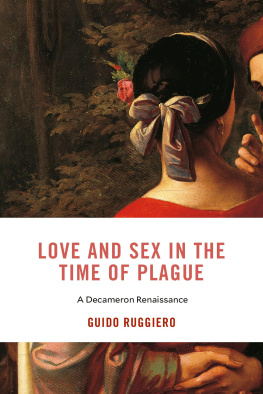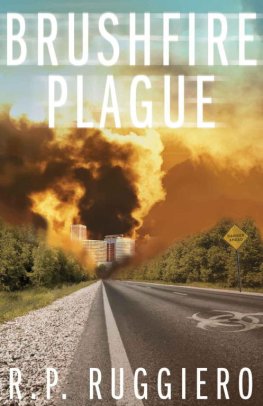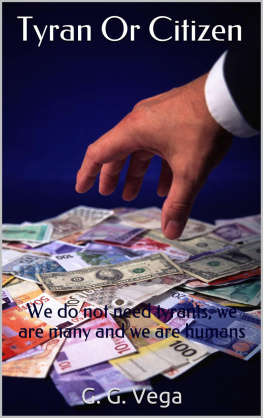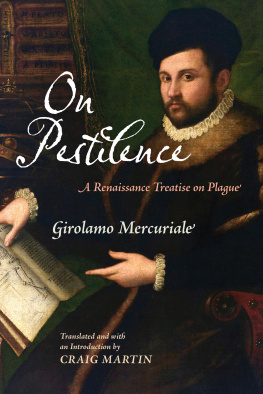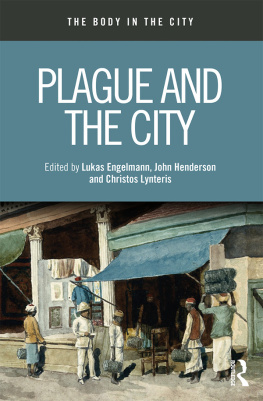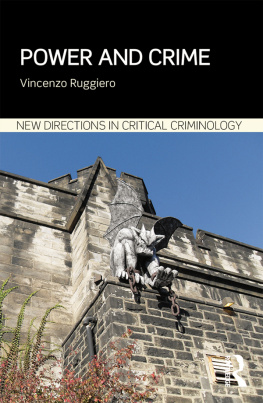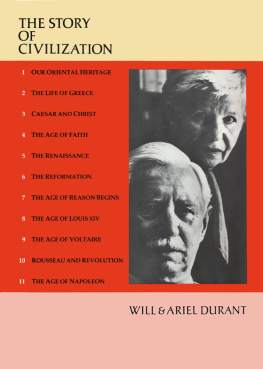Guido Ruggiero - Love and sex in the time of the plague : a Decameron renaissance
Here you can read online Guido Ruggiero - Love and sex in the time of the plague : a Decameron renaissance full text of the book (entire story) in english for free. Download pdf and epub, get meaning, cover and reviews about this ebook. year: 2021, genre: Romance novel. Description of the work, (preface) as well as reviews are available. Best literature library LitArk.com created for fans of good reading and offers a wide selection of genres:
Romance novel
Science fiction
Adventure
Detective
Science
History
Home and family
Prose
Art
Politics
Computer
Non-fiction
Religion
Business
Children
Humor
Choose a favorite category and find really read worthwhile books. Enjoy immersion in the world of imagination, feel the emotions of the characters or learn something new for yourself, make an fascinating discovery.
- Book:Love and sex in the time of the plague : a Decameron renaissance
- Author:
- Genre:
- Year:2021
- Rating:4 / 5
- Favourites:Add to favourites
- Your mark:
- 80
- 1
- 2
- 3
- 4
- 5
Love and sex in the time of the plague : a Decameron renaissance: summary, description and annotation
We offer to read an annotation, description, summary or preface (depends on what the author of the book "Love and sex in the time of the plague : a Decameron renaissance" wrote himself). If you haven't found the necessary information about the book — write in the comments, we will try to find it.
Guido Ruggiero: author's other books
Who wrote Love and sex in the time of the plague : a Decameron renaissance? Find out the surname, the name of the author of the book and a list of all author's works by series.
Love and sex in the time of the plague : a Decameron renaissance — read online for free the complete book (whole text) full work
Below is the text of the book, divided by pages. System saving the place of the last page read, allows you to conveniently read the book "Love and sex in the time of the plague : a Decameron renaissance" online for free, without having to search again every time where you left off. Put a bookmark, and you can go to the page where you finished reading at any time.
Font size:
Interval:
Bookmark:
Contents

I TATTI STUDIES IN
ITALIAN RENAISSANCE HISTORY

Published in collaboration with I Tatti
The Harvard University Center for Italian Renaissance Studies
Florence, Italy
GENERAL EDITOR
Nicholas Terpstra
LOVE AND SEX IN THE TIME OF PLAGUE
A Decameron Renaissance

GUIDO RUGGIERO

Copyright 2021 by the President and Fellows of Harvard College
All rights reserved
Printed in the United States of America
First printing
Cover art: Storytellers of Decameron (detail) by Francesco Podesti courtesy of Museo Civico Treviso / De Agostini Picture Library / Bridgeman Images
EPUB: 978-0-674-25956-0
PDF: 978-0-674-25958-4
CLOTH: 978-0-674-25782-5
Library of Congress Cataloging-in-Publication Data
Names: Ruggiero, Guido, 1944 author.
Title: Love and sex in the time of plague : a Decameron renaissance / Guido Ruggiero.
Other titles: I Tatti studies in Italian Renaissance history.
Description: Cambridge, Massachusetts : Harvard University Press, 2021. | Series: I Tatti studies in Italian renaissance history | Includes bibliographical references and index.
Identifiers: LCCN 2020047004 | ISBN 9780674257825 (cloth)
Subjects: LCSH: Boccaccio, Giovanni, 13131375. DecameroneCriticism and interpretation. | Love in literature. | Sex in literature. | Renaissance.
Classification: LCC PQ4293.L72 R84 2021 | DDC 853/.1dc23
LC record available at https://lccn.loc.gov/2020047004
For a fictional savior and a real one:
Alibech and Laura
CONTENTS

LOVE AND SEX IN THE TIME OF PLAGUE

T he year 1348 shocked the world, or at least the world as viewed from the West; for it was the year that an apparently new plague that would become known as the Black Death struck Europe, carrying off from one-half to two-thirds of its population. Indeed, it is still remembered today as one of the greatest disasters of history. But, at the time, it seemed to confirm widely shared apocalyptic visions that the end of time was nigh. And with good reason, for the tremendous dying off had left the survivors wandering in the suddenly empty streets of once thriving towns and in the countryside contemplating abandoned fields and villages with fear about what further calamities an angry and punishing God had in store for a sinning humanity.
Giovanni Boccaccio claimed that in response to that deeply disturbing disaster he wrote the Decameron, one of the greatest and best-known works of Western literature. Although he had begun collecting and rewriting the one hundred tales that make up the heart of his masterpiece before the plague struck and continued revising them afterward, he maintained that he had decided to write it in order to help his fellow Florentines weather the emotional stress of the staggering loss and devastation of the Black Death. His tales, he promised, would provide a pleasant diversion from the cruel reality of those empty streets and vacant palaces that literally haunted their once flourishing city and his imagination.
Significantly, one of the themes of those stories that he asserted would be most useful in doing so was love: a crucial emotion, key to recovering normal family life and community after that destruction. But he promised that love could offer something more valuable yetfor it was an emotion that he noted was especially important for uplifting the spirit of the women who had suffered so much, both from the plague and from the unhappy arranged and loveless marriages and unjustly restricted life they led. In sum, Boccaccio declared that the healing power of love in the time of the plague was his motive for retelling the tales of the Decameron and an ideal antidote for the material and emotional disaster that had struck his world.
Yet where Boccaccio saw love, he also saw sex. For the two were deeply intertwined in the culture and life of the day for him and his compatriots. And love both ideally and regularly led to shared sexual pleasures, at least in the tales of the Decameron. The reverse, unsurprisingly, was not always the case. Sex did not necessary lead to or even involve love, and therein lay a series of problems moral, practical, and emotional. Problems that at first might seem to have been quite similar to problems faced today, but Boccaccios second half of the fourteenth century was not the modern world, and the way those problems were lived and felt at the time opens up revealing vistas on a complex of values and emotions that were often decidedly different. And this was the case even if they were in many ways foundational for our own values and emotions.
To return to a metaphor that I have used before, that world of love and sex at the time of the plague in Italy was rather like the world that Alice encountered when she went through the looking glass in Alice in Wonderland. People, things, and practices seemed familiar, but, tellingly, nothing worked there in quite the same way as it did before she entered her disorienting wonderland. Our own wonderland of Boccaccios Decameron reads in much the same way, for at the same time that it often seems not quite right and disorienting, as we explore it in this book, its historical settings and textures offer fascinating comments and critiques both positive and negative on sex and love in the time of the plague and perhaps today as well as we respond to the dislocations and traumas of a modern pandemic.
In Florence in Boccaccios day, for example, it was recognized and feared that the passions and practices associated with love and courting slid all too easily into the pleasures and myriad dangers of sexual intercourse, formally labeled illicit. Adultery and youthful premarital sex, in fact, were the assumed ideal locus of love, at least in the literary traditions of courtly love, the dolce stil nuovo, and the poetry of noted and much-imitated writers like Dante and Petrarch. In contrast, love in marriage, both in literature and practice, was a relatively unlikely proposition. For, while courting provided an important measure of status and setting for social interaction, the emotional love that was seen as developing in that context was viewed as too driven by youthful passions and too quickly passing to be used as the base for the carefully planned family alliances that were held to be at the heart of successful marriagesmarriages that served greater family goals and provided the stable disciplinary base for an ordered society, socially and sexually.
Love was simply too quick, too fleeting, and too irrational an emotion to forge a long-term relationship like marriage. And, in turn, marriage, as a binding relationship entailing a series of obligations, was literally too constraining and unfree to allow one to follow ones desires and freely choose a lover, while true love was nothing if not free. In many ways, it was that freedom to love that made it an emotion both attractive and dangerousdeeply dangerous and often far distant from the modern world of Valentine cards or saccharine love stories. Yet, as we shall see, Boccaccios tales suggestively break free from this vision of the correct order of things. And anticipating that thesis of this book, they broke free to attempt to civilize the emotions associated with love and sex, to make them less dangerous for the newly reordered urban civil society that was to be rebuilt following the devastation of the plague.
Next pageFont size:
Interval:
Bookmark:
Similar books «Love and sex in the time of the plague : a Decameron renaissance»
Look at similar books to Love and sex in the time of the plague : a Decameron renaissance. We have selected literature similar in name and meaning in the hope of providing readers with more options to find new, interesting, not yet read works.
Discussion, reviews of the book Love and sex in the time of the plague : a Decameron renaissance and just readers' own opinions. Leave your comments, write what you think about the work, its meaning or the main characters. Specify what exactly you liked and what you didn't like, and why you think so.

